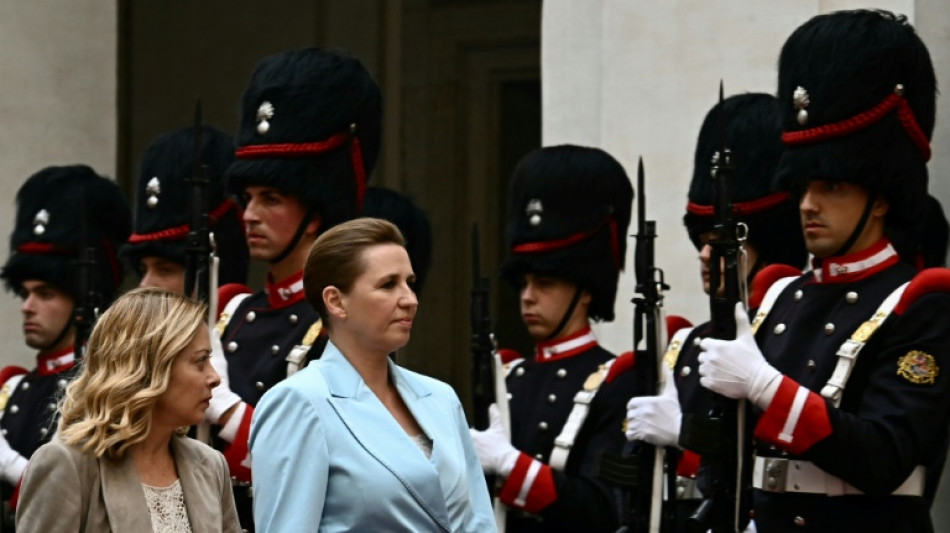

Italy, other EU states urge rethink on European rights convention
Italy and eight other EU states, including Denmark and Poland, published an open letter Thursday urging a rethink of how the European Convention of Human Rights is interpreted, especially on migration.
The countries said they want "a new and open minded conversation about the interpretation of the European Convention on Human Rights", according to the text, released by Italian Prime Minister Giorgia Meloni's office.
"We have to restore the right balance," the signatories said.
The convention, which came into force in 1953, covers the right to life; a ban on slavery, torture and degrading treatment; freedom of expression; a prohibition on discrimination; and the right to family life.
Its provisions have to be followed by all 46 countries signed up to the convention, which includes all 27 EU member states, with the European Court of Human Rights issuing binding rulings.
A souring of public opinion on migration has fuelled hard-right electoral gains in several EU countries, upping pressure on governments.
The letter urging a review was made public following a meeting in Rome between Meloni and Danish Prime Minister Mette Frederiksen, both of whom have taken a hardline stance on migration.
It was also signed by the leaders of Austria, Belgium, Estonia, Latvia, Lithuania, Poland and the Czech Republic.
Irregular border crossings detected into the European Union were down 38 percent to 239,000 last year after an almost 10-year peak in 2023, according to EU border agency Frontex.
But, led by hawks including Italy and Denmark, EU leaders called in October for urgent new legislation to increase and speed up returns and for the commission to assess "innovative" ways to counter irregular migration.
- 'Too far' -
The nine signatories to the letter said it was time for "a discussion about how the international conventions match the challenges that we face today".
They also called for "a look at how the European Court of Human Rights has developed its interpretation of the European Convention on Human Rights," the letter said.
The European Court of Human Rights has recently heard cases against Latvia, Lithuania and Poland concerning alleged unlawful treatment of migrants, while Denmark was told to amend its family reunification rules.
The court has also issued multiple judgements against Italy over its treatment of migrants.
The states ask "whether the Court, in some cases, has extended the scope of the Convention too far... thus shifting the balance between the interests which should be protected," the letter said.
"We believe that the development in the Court’s interpretation has, in some cases, limited our ability to make political decisions in our own democracies", it added.
Like several other European leaders, Meloni has vowed to cut irregular migration -- but her flagship policy to operate migrant centres in Albania has hit a series of legal roadblocks and delays.
Italian judges have repeatedly refused to sign off on the detention in Albania of migrants intercepted by Italian authorities at sea, referring legal questions to the European Court of Justice, which has yet to weigh in.
While not a signatory to the letter, Britain saw its own scheme -- the deportation of migrants to Rwanda -- run afoul of the European Court of Human Rights.
G.Lombardi--GdR


